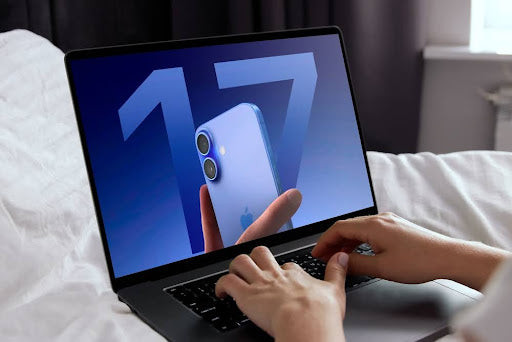Can a Refurbished Phone Be Hacked? Understanding the Security of Refurbished Devices

Image Source: Via Roman Stavila
In today's tech-driven world, smartphones have become an indispensable part of our lives. However, with the high cost of new devices, many consumers are turning to refurbished phones as a cost-effective alternative. This shift raises important questions about the security of these devices: Can a refurbished phone be hacked? How secure are refurbished phones? And can people hack my refurbished phone along with other devices? Let’s dive into these questions and explore the security implications of using refurbished devices.
What Are Refurbished Phones?
Refurbished phones are pre-owned devices that have been restored to full working condition after undergoing rigorous testing and repair processes. These phones may have been returned by customers or used as display models. They are often sold at a lower price point, making them an attractive option for budget-conscious consumers.
The Appeal of Refurbished Phones
Before diving into the security aspects, it's important to understand why refurbished phones are so popular. Refurb offers a cost-effective alternative to brand-new models, often coming with a warranty that provides a layer of assurance to buyers. Additionally, purchasing refurbished phones supports environmental sustainability by reducing e-waste. And no doubt that these days we’re looking to use our possessions to their fullest; that includes our tech gadgets.
Can a Refurbished Phone Be Hacked?
The short answer is yes, a refurbished phone can be hacked, but this is not unique to refurbished devices. Any smartphone, whether new or refurbished, is susceptible to hacking if not properly secured. The risk of hacking depends more on the current security measures in place rather than the phone's refurbished status.
Understanding the Security Risks
Pre-Installed Malware
One potential risk associated with refurbished phones is the possibility of pre-installed malware. If the refurbishment process is not conducted by a reputable provider, there's a chance that the device could contain malicious software designed to steal personal information or compromise the device's security. Despite the chances of this happening being quite low, it’s still worth pointing out as a potential threat.
Outdated Software
Another concern is outdated software. Refurbished phones may not always have the latest operating system or security patches, making them more vulnerable to hacking attempts. It's crucial for users to ensure their device's software is up to date. Consider your device needs before you purchase as some older model smartphones won’t update to the latest operating system. For example: Apple iPhone X no longer meets the minimum hardware requirements to update to iOS 17.
Enhancing Security on Refurbished Phones
Choose Reputable Sellers
To mitigate the risks associated with refurbished phones, it's important to purchase devices from reputable sellers. These sources are more likely to follow strict refurbishment processes and ensure the device is free from malware and other vulnerabilities. Established retailers or certified refurbished programs are generally safer and often provide warranties. If you’re purchasing in Australia, online sellers like Frank Mobile, OzMobiles and Reebelo, offer both an included warranty and battery health guarantee.
Update Regularly
Once you have your refurbished phone, make sure to update it regularly. Installing the latest software updates and security patches is vital in protecting your device from new vulnerabilities and hacking attempts.
Install Security Apps
Consider installing reputable security apps that offer additional protection against malware, phishing attempts, and other malicious activities. These apps can provide real-time monitoring and alerts to keep your device safe.
Practice Safe Browsing Habits
Be cautious about the websites you visit and the links you click on. Avoid downloading apps from third-party app stores or clicking on suspicious links in emails or messages, as these can be gateways for malware and hacking attempts.
Are Refurbished Phones Secure?
While refurbished phones can be as secure as new ones, their security largely depends on the measures taken by both the refurbisher and the end-user. By choosing reputable sellers, keeping the device updated, and practicing safe usage habits, users can significantly reduce the risk of their refurbished phone being hacked.
Vulnerabilities in the Refurbishment Process
The process of refurbishing a phone involves several steps, including wiping the previous owner's data, repairing any physical damage, and updating the operating system. However, if any of these steps are performed inadequately, it can leave the phone vulnerable to security threats. For example, failure to properly erase the previous owner's data could result in personal information being accessible to the new owner or potential hackers.
Balancing Cost and Security
Refurbished phones offer a cost-effective way for consumers to access technology, but it's important to stay informed about potential security risks. By taking proactive steps to ensure the security of your refurbished device, you can enjoy the benefits of a smartphone without compromising your personal information. Remember, the key to securing any device, refurbished or new, lies in vigilance and adopting best practices for digital security.
How to Protect Your Refurbished Phone
Verify the Source
When purchasing a refurbished phone, it's crucial to buy from reputable sellers or certified refurbishment programs. These sources are more likely to follow strict refurbishment processes and ensure the device is free from malware and other vulnerabilities.
Perform a Factory Reset
Upon receiving your refurbished phone, performing a factory reset can help ensure that any remnants of the previous owner's data are completely wiped from the device. This step also removes any potentially malicious software that might have been installed.
Keep Your Device Updated
Regularly updating your device's software is one of the most effective ways to protect against security threats. Ensure that your refurbished phone is running the latest version of its operating system and that you install security patches as soon as they become available.
Use Security Software
Installing reputable security software can provide an additional layer of protection against malware and other online threats. These tools can detect and remove malicious software, protect against phishing attempts, and secure your personal information.
Refurbished phones offer a compelling alternative to new devices, but they come with their own set of security concerns. By understanding these risks and taking proactive steps to mitigate them, users can enjoy the benefits of refurbished phones without compromising their security. As the digital landscape continues to evolve, staying informed and vigilant is key to protecting yourself in the ever-changing world of cybersecurity. Overall you really shouldn't be worried about giving refurbished devices a try.



